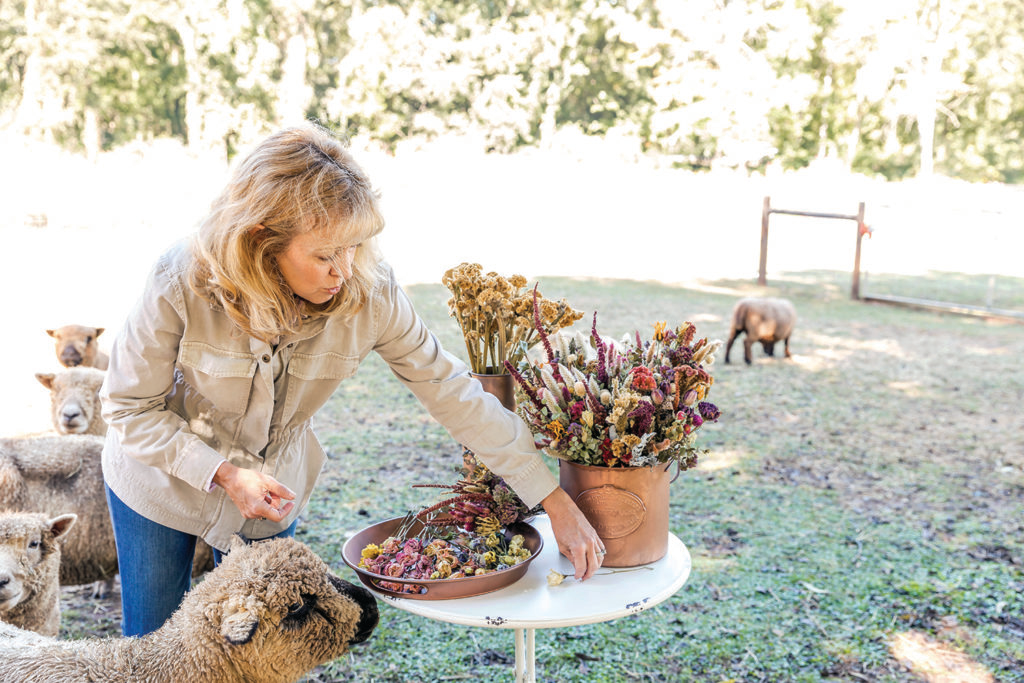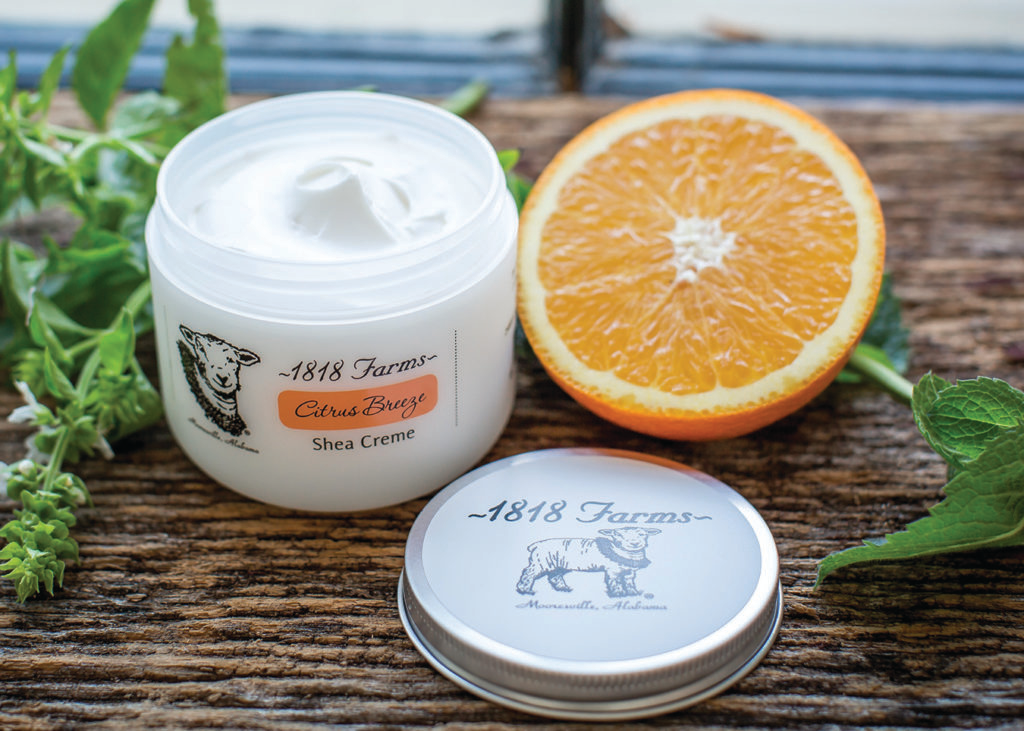By Jennifer Crossley Howard
Tucked away in the corner of one of Alabama’s oldest towns is 1818 Farms, where calendula, zinnia, coneflower and more seem to glow neon against heavy clouds.
Owner and founder Natasha McCrary cracked open a white bachelor’s button revealing an intricate seed.
“It looks like a tiny little skeleton,” she says.
McCrary walked quickly between tall rows of annuals and perennials, mucking about in bee-printed rubber boots and green overalls. She was intent on beating the heat on a recent summer morning. She and another employee had finished fertilizing and were watering the flowers before getting ready to harvest them for bouquets. The farm delivers 50 to 100 bouquets a week as part of its seasonal subscriptions. The menu of blooms requires careful planning to have enough flowers without letting them go to waste.
“In this job, speed is important,” she says.

McCrary began 1818 Farms in 2013, mixing an all-natural shea butter cream. Since then, more than 300,000 jars have been sold in stores and online in several scents, including her preferred lavender. Coffee, cuticle cream, milk tea bath and the most visual product, the flower farm, have expanded. Many bath and body ingredients are grown in Mooresville, tended to by McCrary and another employee, Cindy, while products are processed at a warehouse in downtown Huntsville.
At least 500 stores carry 1818 Farms products, including local shops such as The Cupboard in Decatur and U.G. White Hardware & Furniture in Athens. The website, 1818farms.com, features the many retail products for sale, the farm’s history and information on retailers that carry the 1818 Farms line.
1818 Farms is a working farm, not open for drop-in tours or for many events.
“If you’re doing the work, it’s hard to do both,” McCrary says. “If everything is planted, we’re tending to 13,000 flowers at a time.”

Judging from the demand 1818’s bouquets and workshops have garnered over the pandemic, it seems people crave the simple and earthy beauty of flowers. A dried flower workshop this summer sold out even before an announcement made it online. Another is planned for fall.
The work is in McCrary’s blood. The farm began as a way to teach her children about land and sustainability, something she learned from her father, a botanist. McCrary’s husband, Laurence, who has a financial background, runs that side of things, while their high school and college-age children assist with chores and hosting guests at events such as bloom strolls. Their children are fifth-generation Mooresvillians; Laurence McCrary’s ancestors date back to the 1800s.
The flora in and around the farm range from native — oak leaf hydrangea and drooping canopies of magnolia — to more atypical fauna such as Southdown Baby Doll Sheep, whose pictures frequent the farm’s Instagram page and is the farm’s marketing mascot.
The company has reported an average 70 percent year over year growth for the past five years, and though the COVID-19 pandemic has ended many a small business, it was actually a boon for 1818 Farms. Home delivery bouquet subscriptions picked up during quarantine, and bath and beauty products have long been the business’s biggest money makers. With restrictions lifting, the antique ice-blue 1965 Ford F100 flower truck will soon start popping up to sell flowers again.
McCrary is proud of the farm’s growth of species of flowers famous for not flourishing in the Deep South’s stout heat, like poppies and digitalis, also known as foxglove. The trick? Start seeds early and harvest blooms before the true heat sets in.
Most days on the farm average nine hours, and McCrary, who is 50, wonders how that will feel in later years.
“I don’t think people realize how physical this is,” she says. “Nothing’s mechanized. Everything we do is done by hand.”
Still the gratification of working outdoors outweighs the aches and pains.
“For me, satisfying is seeing what you can grow from that tiny seed,” McCrary says.




